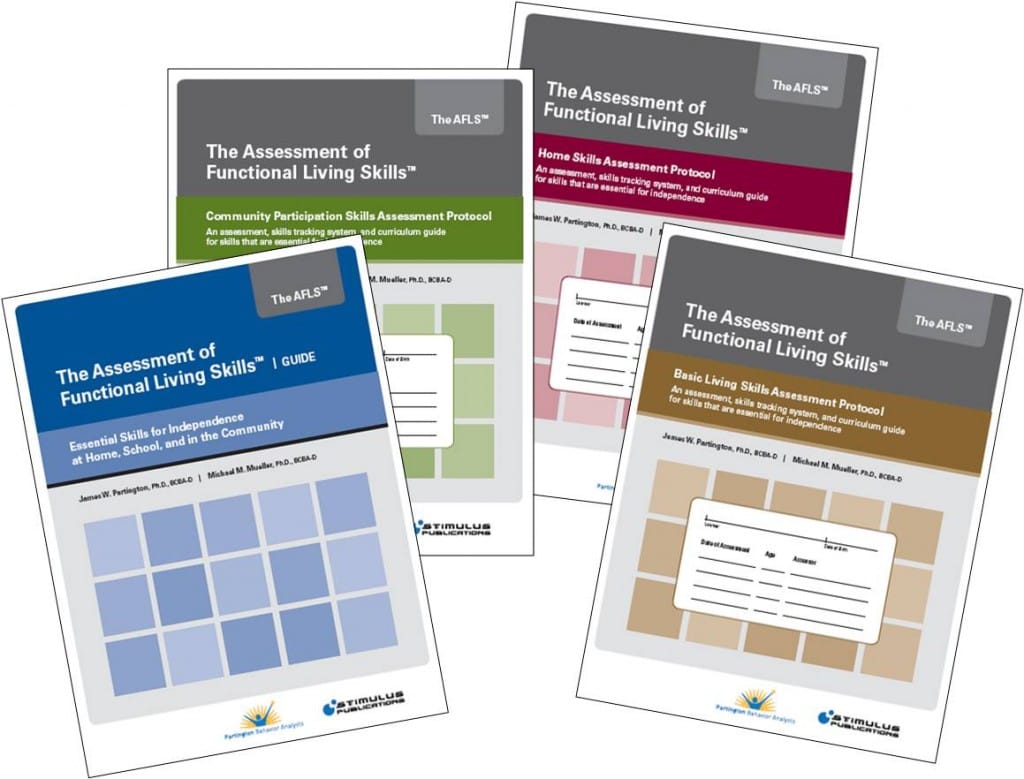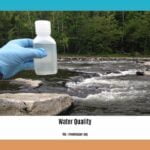This comprehensive guide provides everything you need to know about the Assessment of Functional Living Skills (AFLS), a powerful tool for evaluating and teaching essential life skills to individuals with autism spectrum disorder (ASD) and other developmental disabilities. Learn how the AFLS works, what it covers, and how it can be used to empower individuals toward greater independence and a better quality of life.
Decoding the AFLS: A Roadmap to Independence
The AFLS is more than just a test; it’s a comprehensive, individualized, and progressive roadmap designed to help individuals learn and master the essential skills they need for everyday life. It goes beyond simply measuring what someone can or can’t do—it guides how to teach and support their growth. Rather than a pass-or-fail system, the AFLS provides a detailed picture of an individual’s strengths and areas where they may need additional support, enabling the creation of truly personalized and effective learning plans.
Key Features of the AFLS Assessment
- Comprehensive: The AFLS assesses over 735 skills across six key domains: Basic Living, Home, Community Participation, School, Independent Living, and Vocational Skills. This breadth ensures a holistic understanding of an individual’s abilities. More on the domains below
- Individualized: Recognizing that everyone learns differently, the AFLS tailors instruction to each person’s unique needs and learning pace. This personalized approach is crucial for maximizing progress.
- Progressive: The AFLS tracks progress over time, enabling ongoing monitoring and adjustments to learning plans as needed. It’s like a constantly updated progress report, ensuring support remains relevant and effective.
- Practical and Relevant: The AFLS focuses on the practical skills people use daily, from basic self-care like brushing teeth and getting dressed to more complex tasks like managing finances or navigating public transportation.
- Integrative: Designed to enhance existing teaching methods, the AFLS seamlessly integrates into current curricula and therapy programs, adding value to any learning environment.
Why Choose the AFLS? Unlocking Potential and Empowering Individuals
The AFLS offers numerous benefits for individuals, educators, and families:
- Skill Development: The AFLS helps individuals learn and improve essential life skills, leading to greater independence and an enhanced quality of life.
- Confidence Building: Mastering new skills through AFLS-guided instruction often boosts confidence and self-esteem, empowering individuals to take on new challenges.
- Pathway to Independence: The AFLS equips individuals with the skills necessary for greater independence in various life settings, from managing their own household to pursuing meaningful employment.
- Data-Driven Instruction: The AFLS provides valuable data to inform instruction and optimize teaching strategies, ensuring educators and therapists can work smarter, not harder.
- Enhanced Communication: The AFLS provides a common language for everyone involved in an individual’s care, facilitating better communication and collaboration.
How the AFLS Assessment Works in Practice
- Observation: Trained professionals observe individuals in different settings, noting their performance on various tasks and interactions.
- Standardized Scoring: A standardized scoring system documents and tracks skill levels, making progress monitoring clear and efficient.
- Collaborative Approach: Educators, therapists, and families work together to interpret results and develop personalized learning plans.
What is the AFLS Assessment?
The Assessment of Functional Living Skills (AFLS) is more than a test; it’s a personalized guide to everyday life, helping identify strengths and areas needing support for increased independence. It empowers individuals by focusing on six main domains of daily living:
- Basic Living Skills: Eating, dressing, hygiene
- Home Skills: Cleaning, cooking, laundry
- Community Participation Skills: Using public transport, shopping, social interaction
- School Skills (if applicable): Completing assignments, classroom participation
- Independent Living Skills: Managing finances, medication management
- Vocational Skills (if applicable): Job-related tasks, workplace etiquette
These domains encompass a broad range of skills, and the AFLS acknowledges the nuances within each. For instance, “Community Participation Skills” ranges from navigating public transport to confidently engaging in social activities. This personalized, adaptable approach sets the AFLS apart. It doesn’t just identify areas for improvement; it provides a curriculum and tracking system to facilitate teaching, monitor progress, and make adjustments as needed.
| Skill Domain | Example Skills |
|---|---|
| Basic Living Skills | Eating, dressing, hygiene |
| Home Skills | Cleaning, cooking, laundry |
| Community Participation Skills | Using public transport, shopping, social interaction |
| School Skills (if applicable) | Completing assignments, classroom participation |
| Independent Living Skills | Managing finances, medication management |
| Vocational Skills (if applicable) | Job-related tasks, workplace etiquette |
This table offers a glimpse into the detailed skill breakdown within each domain. Ongoing research continues to refine our understanding of how best to support individuals with developmental disabilities, and the AFLS plays a crucial role in this evolution. It’s important to note that trained professionals administer the AFLS to ensure accurate interpretation and application. The AFLS empowers individuals towards fuller, richer lives by identifying skill gaps and providing targeted instruction, ultimately enhancing their quality of life and independence. This suggests that with a focus on practical skills and consistent support, we can help individuals with developmental disabilities thrive. The AFLS represents a positive step toward a more inclusive and supportive society.
What Age is the AFLS Assessment for?
The AFLS is designed for a wide range of individuals, from early elementary school children through adulthood. Its flexibility allows it to adapt to the individual’s developmental stage and changing needs over time.
Early assessment in elementary school can be crucial for identifying strengths and weaknesses, allowing for timely intervention and support. As individuals transition through adolescence and into adulthood, the AFLS continues to be relevant, helping them maintain and improve essential life skills as they navigate different life stages and transitions.
| Age Group | AFLS Applicability |
|---|---|
| Elementary School | Provides a baseline for early intervention and skill-building. |
| Adolescence | Supports the development of critical life skills during a period of significant change. |
| Adulthood | Facilitates ongoing skill maintenance and improvement across various life stages and transitions. |
The AFLS generates a detailed profile of each individual’s skills and abilities, allowing for personalized learning plans tailored to their specific goals and circumstances. It’s not a one-time assessment; it can be administered multiple times to track progress, monitor skill development, and ensure interventions remain effective and relevant. Ongoing research continues to explore the application of the AFLS with specific populations and investigate its long-term effects. While the AFLS provides valuable information, it’s important to remember that our understanding of human development is constantly evolving, and new research may influence how we interpret and use assessment tools like the AFLS. Its flexible, personalized approach, and focus on continued development make the AFLS a valuable resource for individuals across the lifespan.
What is the difference between EFLs and AFLS?
Both EFLs (Essential for Living) and AFLS (Assessment of Functional Living Skills) are valuable tools for identifying skills and areas needing improvement to promote independence. However, they differ in their scope and approach.
The AFLS focuses on assessing and teaching practical everyday skills grouped into six main areas: basic living skills, home skills, community participation, school skills, vocational skills, and independent living skills. It provides a roadmap for teaching, tracking progress, and making adjustments along the way.
EFLs take a broader perspective, considering both functional life skills and challenging behaviors that might hinder learning and independence. While AFLS primarily focuses on what skills a person has, EFLs delve into why they might be struggling, encompassing factors like social interaction difficulties, emotional regulation, and problem-solving.
| Feature | AFLS | EFLs |
|---|---|---|
| Primary Focus | Assessing and teaching functional skills | Assessing functional skills and problem behaviors |
| Scope | Specific skill domains | Broader, more holistic |
| Curriculum/Tracking | Provides guide and system | May vary |
| Behavior Management | Implicitly addressed | Explicitly addressed |
Ongoing research suggests that combining approaches like AFLS and EFLs can be particularly effective. Tailoring interventions to individual needs is crucial, and these assessments are valuable tools within a broader support system.
If you want to learn about the two starting materials used in a Robinson Annulation, click here. The Robinson annulation is an important reaction in organic chemistry involving a series of reactions that construct a five-membered carbocycle. To have a deeper understanding of VVC map, click here. The VVC map provides valuable insights into the structure, bonding, and reactivity of molecules.
- Discover Long Black Pepper: Flavor & Health Benefits - April 25, 2025
- Shocking Twists: The Grownup Review: Unreliable Narration - April 25, 2025
- A Quiet Place Book vs Movie: A Deep Dive - April 25, 2025
















